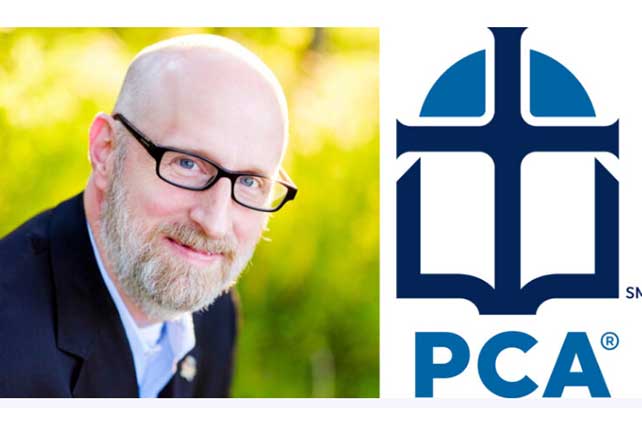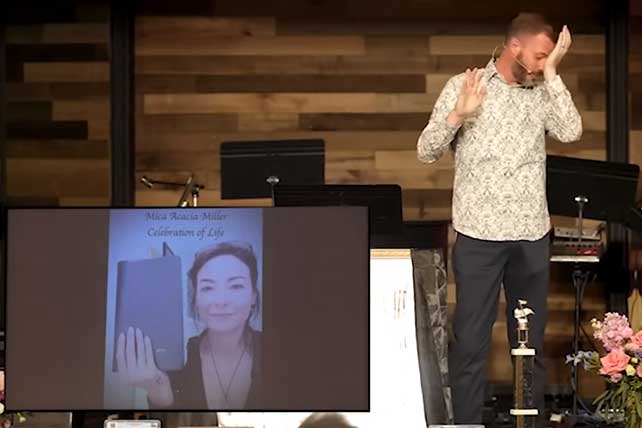Ashley Hales on The Stetzer ChurchLeaders Podcast.mp3: this mp3 audio file was automatically transcribed by Sonix with the best speech-to-text algorithms. This transcript may contain errors.
Voice Over:
Welcome to the Stetzer Church Leaders Podcast, conversations with today’s top ministry leaders to help you lead better every day. And now, here are your hosts, Ed Stetzer and Daniel Yang.
Daniel Yang:
Welcome to the Stetzer Church Leaders Podcast, where we’re helping Christian leaders navigate and lead through the cultural issues of our day. My name is Daniel Yang, national director of Churches of Welcome at World Relief. And today we’re talking with Doctor Ashley Hales. Ashley is the co-founder of the Willowbrae Institute, a new think tank researching the intersection of Christianity and the common good in America. She hosts the Cartographers Podcast and is the author of several books, including A Spacious Life, Trading Hustle, and Hurry for the Goodness of Limits. Now let’s go to Ed Stetzer, editor in chief of Outreach Magazine and the dean of the Talbot School of Theology.
Ed Stetzer:
Well, Ashley, super to have you here on the podcast, though I must tell you that this may be the next 30 minutes. May be personal, like coaching for Ed Stetzer, because a spacious life is not probably what most people think of me. And so I often bring people on the podcast to help me, and hopefully they get helped in the process of that as well. There’s kind of a paradox, though, even in the beginning of the book. Talk to us a little bit about that. Yeah.
Ashley Hales:
You know what’s really interesting? It’s called a spacious life trading hustle and hurry for the goodness of limits. So we put the word limits next to spacious and people are like, huh, I don’t understand that because, you know, primarily in our Western American culture, we tend to view limits and constraints as something that’s going to restrict our freedom. And we kind of think that the, the key to the good life is to live this kind of unrestricted, fully autonomous sort of way of life. And so when we when we think about spaciousness, we think about the absence of limits. Um, but really I found that, you know, it’s amazing, right? How God actually created the world to work with those limits is actually the thing that actually brings flourishing and a sense of spaciousness, a sense of contentment.
Ed Stetzer:
Yeah. And I think the question is for a lot of people is how do we again, to use the title of the book, how does it feel? Spacious. Because for me, you know, I wake up every morning and because I’m on the West Coast, you’re on the West coast. The West Coast is the best coast. You know, I’ve already got emails from the East Coast that come in and emails I haven’t yet responded to, and I begin each day saying, who am I going to disappoint by saying no to today? And so I want to establish limits. I know as a leader it’s necessary for me to establish limit limits, but it doesn’t feel spacious. It feels a little bit almost like I’m in a battle. Each morning when I look, I try to even to look at my phone first thing because I’m like, okay, I got to say no, no, no, or you know, who am I going to disappoint that kind of stuff? So again, coach me. How do how should I how should I move from I think I’m good at limits. I’m not good at feeling spacious.
Ashley Hales:
Yeah, well, I think, you know, we can I guess a lot of it to a lot that really has excited me about this book was my own similar sort of struggle, um, in the sense that writing A Spacious Life started out kind of in anger. Like I was angry that I couldn’t do it all. I was angry that, you know, Wendell Berry says, we live the given life and not the planned. And I was like, I really got I really want my planned life. Um, I think I could direct this better than you. And, you know, I realize that is a very big, overarching way of thinking about limits and spaciousness, but what you’re drawing attention to is kind of that daily grind of what? How do I say no to my phone? How do I say no to my email? How do I say no to people? Um, because ultimately, I think when we put ourselves into like, oh, this feels so awful, really, what we’re putting ourselves into, right, is this sense of, I want to be God for people, right? Or I want to be God for myself, either in planning my life or in meeting everybody’s needs. And I think there’s a tremendous amount of pressure to actually do just that in helping professions. Right. Like, I think there’s the old adage about, you know, a pastor can break all, like the most of the Ten Commandments, um, he’ll get fired for. But the one about keeping the Sabbath, um, if he breaks that, then, you know, he might actually get a promotion.
Ed Stetzer:
You know, that’s it’s. Wow. I don’t think I’ve actually. You said that’s an old saying. I don’t think I’ve heard that before, but I think that’s really insightful. Um, yeah. Because, I mean, they literally people reward you for overworking. Correct. And and critique you for, for Sabbath thing. And I will tell you, you know, as someone who’s kind of a speaker, like, even when I say, let’s say it’s a three day meeting and we want you to stay all three days and speak each morning. And I’m like, well, I really I’d love to speak to us about three times, but I could do it on one day. Yeah. People sort of look down at you and I’m like, I just want to go home because I like my family, you know? I like, you know, I’m for. Yeah, I’m for that. So, so but again, most, you know, most of the people that are listening, they’re pastors and church leaders. They’re not authors or they’re not speakers. So but for them or just in general, maybe what. Would some. What would a spacious life look like? What are its characteristics?
Ashley Hales:
Yeah. For pastors and church leaders. You know, I think the there were there’s always going to be an amount of needs, right. That you can’t you can’t meet. And there’s going to be too many people with too many problems, right, that you can’t meet. And I think we can take such a huge encouragement that Jesus, who was God, didn’t heal like every person in Galilee. And Jesus, who was God, chose to withdraw from the crowds, and he chose to meet with his father and to pray and even just to in his personal relationships. He wasn’t always with the crowds. He wasn’t even always with the 12. Sometimes he just had smaller, you know, he was just with the three. And I think it’s a good pattern for us to realize, okay, Jesus became human, so he embraced our limits, which is just mind boggling. And he also, in how he lived his life, chose those sort of patterns and rhythms that connected him to God and connected him with people. And he was totally okay with like, letting the chips fall where they may.
Ed Stetzer:
Yeah, but man, even though I think I’m triggered by the word letting the chips by the phrase letting the chips fall where they make us, because at the end of the day, if I’m a pastor and church leader, I’m responsible. I mean, I really have some level of stewardship responsibility. So how do I find that? Okay, I still am responsible, but I would actually fail. I’ll fail. I’ll lead poorly if I then try to take on everything that that responsibility entails. And again, I know your book again, just as you don’t just, you know, it’s called a spacious life trading hustle and hurry for the goodness of limits. And by the way, I should also mention that one of the books I found really helpful is a few years back is Finding Holy in the suburbs book you wrote called Living Faithfully in the Land of Too Much. And now that I live in SoCal, I get even more.
Ashley Hales:
Of.
Ed Stetzer:
What you mean. Yeah, so. But but so so how do I how do I like how do I think that way? How do I like I lead I, you know, I have a complex organization with, you know, I mean, hundreds of full and part time people rely on different areas. So I’m responsible for them, but I can’t take on everything. How do I find that right path? Yeah.
Ashley Hales:
I mean, I think a lot of it’s got to be, you know, the put the big rocks in the thing first and then the little rocks last. You know, that sort of illustration.
Ed Stetzer:
That’s one of my favorite illustrations.
Ashley Hales:
It is. So it’s so helpful because when we focus on, you know, the tyranny of the urgent, we will totally flame out, um, and, you know, and so you see Jesus going off to pray with his father like, that became a rhythm that he is sabotaging. He’s memorizing the Torah. He’s, you know, creating cultures of amongst his disciples of, of kind of like odd, odd pairings, right, of people who come from very diverse backgrounds. But, you know, so as we think about, okay, how do I pattern my life like that as a leader? I mean, we’ve got to actually do some of these things. We have to commit to a practice of Sabbath. We have to commit to practices of prayer and solitude and silence where we are communing with God. And if we’re doing those sorts of things, I do feel like some of the some of the medium size rocks begin to kind of find their place a little bit more, or we become, even if we’re in a very high productive season, we come into those meetings without like this, I have to change this. I’m the driver. I need to make this happen. We realize that we can’t control the outcomes and we come in with a more calm, contented, how can I love you? How can I show up for you? How can I serve you way of being in the world?
Ed Stetzer:
I like that definitely a different, uh, I mean, maybe, maybe a different posture. Maybe that’s the right word. So it starts at a different place and flows from a healthier place as well. Okay, so what are some, uh, verses of the hurried, unlimited Life?
Ashley Hales:
Yeah. I mean, I think we’re told to, you know, climb the kind of corporate ladder so we get kind of cultures of achievement, um, that we find belonging in our achievements or success. And parents, you get the sense of, I mean, I, I try desperately to not, you know, have my life from 3 p.m. to 6 p.m. be in the minivan, like, circling for the sports practices. But it’s almost impossible with for children especially. Um, and so we get these sorts of things that we say yes to that we are kind of unthinkingly saying yes to, because this is what everyone else is doing around us. And these, we think, are kind of the keys to success and belonging. Um, and so whether we’re trying to achieve that for our children or trying to achieve it for ourselves, ultimately, you know, even just distracting ourselves with our phones. Um, and not actually really taking restorative rest seriously, not connecting with people. These are ways in which kind of the anxiety of an overworked, overproduced culture finds its way into our habits and rhythms, and it leaves us pretty exhausted. Um, day in and day out. And so if you apply that to to Christian leadership, what it often looks like is that we as leaders believe we’re responsible for doing the work of ministry. My husband, who’s a pastor, often says, you know, my call as the pastor is to help equip the saints, right for the work of ministry, as Scripture says. And so how are we as leaders actually equipping people to do the things that they can then be responsible for, instead of taking on the responsibility to do all of the things ourselves?
Ed Stetzer:
Yeah, yeah. And I think, um, you know, people could be listening, would be listening right now. And some of them were saying, well, you know, you know, Ashley, you’re you’re a successful author. You’re, you know, editor, you’re a dean, whatever. So you’re kind of now can rest a little bit because you, you kind of went through, you know, and I’m, you know, I’m in my 50s now, so like but but this might even be harder for me in my 30s and my 40s, when I felt I was having to prove something or build something or more. So. So how do you kind of advise people who feel like, man, they’ve got to get to the other side so they can rest? I mean, that’s kind of a common that’s the way I felt like in my 20s, 30s and 40s. And I still feel that way sometime in my 50s. So I got to get through this, push through this, just one more thing, and then I’ll be able to rest. Yeah.
Ashley Hales:
No, I think that’s so common because, I mean, my husband and I were just looking at each other the other day, and we keep telling ourselves like, oh, next month things will slow down, you know, or like, oh, next month. And then we were like, maybe this is just kind of how life is, right? Where it always feels like maybe things are a little bit too busy or a little bit too full, or, you know, the the projects are taking too long to complete. And, you know, we kind of tell ourselves the story that circumstantially based in six months or in five years, all x, y, z, and then I can rest. But what is so beautiful as we look at the whole pattern of Scripture, from creation to sin and the fall to redemption and consummation, is that in the very beginning, especially as we talk about the idea of limits, that God actually created the world with limits, right? Planets can’t go everywhere. You know, they have to actually follow a pathway. You know that we see that there are cycles of production in the ground. And, you know, at various times plants will flourish and at various times the ground lies follow. And I think it’s really important to see that that limits aren’t the result of sin.
Ashley Hales:
Limits are actually part of God’s good creation. And so if we remember that, we can then say, just like not only those kind of growth cycles, but also God works and then he rests, right? And so but then he gives the Sabbath right as a gift to his people after 400 years of slavery. That’s when Genesis is written. And so we get this sense that for a people who have been overworked, who have never had a day off, the Sabbath isn’t like all these things that you need another rule to follow. It’s God good. God’s good gifts saying, I, you are mine, and you are worth a life of dignity because you are mine. And so it’s actually I want to give you this rest. And so we work from our rest, not for our rest. And so I think even just the practice of a weekly Sabbath of like unplugging our phones and like taking a walk and having an unhurried meal together and gathering with God’s people are ways that we kind of reorient that story in our head that says, I, I can’t afford to take a break, but to say that this is actually God’s gift to me, because I’m a human and I am a creature and I have limits. And that’s actually good.
Ed Stetzer:
And you talk some about how, you know, Scripture kind of models, even God embracing that. Yet talk to us a little bit about how Jesus modeled that living within limits as well. Yeah.
Ashley Hales:
You know, I think it’s just it’s just mind boggling. I think that Jesus becomes flesh, right? And that even now, you know, that he bears the scars in heaven of his, of his flesh and of our the price of our redemption. And, you know, we can just sit with that and go like, oh my gosh, that’s bizarre, that the second person of the Trinity takes on flesh, chooses to be limited, lives in a time and a place you know is born to a particular woman in a particular time, um, so that he can show us how to live in God’s good limits. And, you know, just as one quick example, you see, for instance, when Satan tempts Jesus in the wilderness that he’s tempted right to prove himself, to promote himself, to provide for himself. And in each of those temptations, right, he uses the word of God to actually, like, live within God’s limits. Like you shouldn’t put God to the test. And you know that. That it is God’s Word that feeds us. And each of those, each of those three temptations we see way back in the garden are the kind of ways in which our first parents were tempted to and did go beyond to trespass. Um, God’s good limits, right? That they they said, you know what? I’m going to prove myself, um, because I don’t actually trust God to provide for me. I’m going to take this instead of letting God provide for me in his good timing. And, you know, I’m going to, um, in that try to take to grab, um, God’s good gifts without them being given to him and her. So I think we see in the life of Jesus that he’s choosing to live within the limits of the father, that our first parents failed to do. Mm.
Ed Stetzer:
An interesting contrast to, um, first and second Adam and more so again, the book. The book is a spacious life trading hustle and hurry for the goodness of limits. So you you you mentioned your husband’s a pastor. You’ve observed pastors and church leaders. You’ve been in this space for a while. What are some ways you see church leaders, our audience, ignoring their God given limits? The sets are church leaders. Podcast is part of the Church Leaders Podcast Network, which is dedicated to resourcing church leaders in order to help them face the complexities of ministry. Today, the Church Leaders Podcast Network supports pastors and ministry leaders by challenging assumptions, by providing insights and offering practical advice and solutions and steps that will help church leaders navigate the variety of cultures and contexts that we’re serving and learn more at Church leaders.com/podcast Network.
Ashley Hales:
I mean, I think the primary one is, uh, overwork, overwork, overwork, for sure, and the sense that when we’ve united. Our work to a sense of calling and mission and vocation, which it is. Um, but it can feel that every decision, every meeting, every strategic plan is like the word of God. Yeah. Yeah. Um, and we also. Probably need to unhinge Unhitch the linchpin between, on the one hand, our plans, our work in the world and the outcomes. Right. And to realize. It is the spirit who brings growth. And so it is not like our best plans or our really cool way that we’ve counseled someone really, that’s going to ultimately lead to transformation and change and growth so God can use those things. But if we can kind of detach ourselves from we can’t control outcomes. And so our job is to to be witnesses to the gospel and to show up and, you know, fully with people in front of us to make good use of our time, to be stewards of our time, our stewards of our organizations. Um, but ultimately kind of release some of the pressure valve on the outcome, I think would be a really great place. Yeah. And I think.
Ed Stetzer:
But I think that’s where it drives a lot of us. You know, I was I was speaking to a group recently talking about like I did some consulting for Lowe’s about kind of some of their labor relations. And I kind of like, I did this I was with another company doing it and, and I basically I was helping them say, here’s how you create better structures in your stores that have low morale. Okay. So if they don’t do that, some people are going to be unhappy. And and you know, and they’re probably profit will be lower, you know. And they’ll, they’ll they’ll have you know turnover. And those are those are bad consequences. But then I think about like, if I don’t lead well at the Talbot School of Theology, like people won’t get trained for gospel ministry, people might not see their lives change by the power of the gospel because we didn’t do so. So it just feels very different than, you know, what my grandfather did when he was laying brick and that he would go home and be done. Yeah. And so so you can sort of take on and you know, this, you’ve seen this. So, so how do I again, I told you this is you’re going to you’re personally coaching me. So how do I say, you know, what the ramifications of me not addressing this are far more significant than the ramifications of something else somewhere else. Um, how do I do that?
Ashley Hales:
Yeah. Um, you know, I think, I mean, it’s got to start with our own personal practices of. Of being with Jesus, right. And our own personal practices of saying, you know, I was just relistening to an old Tim Keller sermon the other day, and he talks about, like in this application, it was about marriage. And he said, you know, if you aren’t becoming a more joyful person, like, have you really understood the gospel? And, you know, and it was convicting because I was like, because I can get so focused in on my to do list. Um, I can get like crazy cruise director with my children saying, we need to do XYZ and ABC amount of time. Um, because we the time that we do spend is important. And I think as leaders there is the there is the very reality of. Uh, you know, a relationship or a coffee date isn’t just a coffee date with a friend, right? That there is a sense of authority, um, and power that we need to steward well, and that that the calling is really heavy and weighty. And so I think I think those things are true. I think, you know, how do we deal with that? We prioritize our relationship with Jesus. Um, and just enjoying him and not just studying his word in order to preach it. Um, we have times where we have fun, we like, prioritize, delight, um, and rest, and we prioritize faithful relationships. You know that whether it’s people across the country, people have known you for forever. If whether it’s people locally as well. But we prioritize those sorts of things, knowing that that’s going to help us be a healthier leader. Um, that has the kind of those big rocks in place of and I think also we realize that suffering is part of the game, um, as well, that I didn’t like that.
Ed Stetzer:
Last part, but the rest of it I was thinking was good. But then you got to the suffering part. But it is, it is true. And again, that we’re going to walk through that whether we desire it or not. Um, so okay, so you’ve talked about taking Sabbath. Yep. You’ve talked about reading Scripture for yourself. Are there other rhythms and practices that’ll help us as our audience pastors, church leaders live with greater rest in peace? Yeah.
Ashley Hales:
I mean, I think we can ask yourself or ask your spouse if you’re married. Like, what are the things you notice that I’m turning to to kind of cope? Um, and so just even beginning to pay attention to those, whether it’s scrolling, like I gave up social media on my phone for lent and it was like, oh, I have time to read novels. And reading novels is actually so much more delightful and will fill me in ways that just endlessly scrolling.
Ed Stetzer:
But have you have you tried at night watching reels together? Because Donna and I do that, and it’s sort of we do. It’s just we for some reason, yeah. Once you watch a few funny reels and it sort of gets your sense of humor, like the algorithm. So it’s like, I don’t use Instagram for like I would never go on Twitter at night because Twitter is just toxic. Yeah, but we find that relaxing. But I get what you’re saying, right?
Ashley Hales:
No, but I think well, and that’s also communal. Right too. And it’s and it’s lighthearted. Um, yeah.
Ed Stetzer:
Donna, Donna tells me that my job is to find and save funny reels there in the day that we can then watch at night. So it’s, you know, I get to be the hunter gatherer. And so and then I share some.
Ashley Hales:
I think that’s fantastic.
Ed Stetzer:
Yeah. But that’s and that’s something we actually like. It’s, I mean it’s, you know, it’s five minutes whatever. But. Right. But it is something fun that we do together. So those kinds of and I love to talk to your spouse stuff because that. Yeah. You know Donna for me speaks just things that I can hear that maybe have other people say I can’t hear. Right.
Ashley Hales:
Yeah. And I think the other kind of conversely to that is to think about, you know, I encourage folks to to write a delight list. What are the things that bring you delight? And sometimes it takes people a while to kind of go like, oh, what did I like to do for fun? Or what feels uniquely me? Um, and so I always encourage folks to go back, maybe to their like 9 to 11 year old self before you, you know, were that awkward kid, um, in the lunch line in middle school, you know, before you became totally self-conscious and say, what are the things that brought me to light and maybe even put those into your Sabbath practices? Or, you know, as you gather with God’s people, those are fascinating.
Ed Stetzer:
Fascinating. Donna’s trying to get me to, uh, I mean, we had a similar conversation. She said, you mean now that our kids are out of the home? Yeah. Um, she says we need a I need a hobby. And so and I, you know, and, you know, I tip my hobby. My was my kids, you know, I spend all the time with that. And so like I used to make model airplanes. So I’ve been thinking about doing that. But I don’t know I don’t know that I can psychologically prepare myself to sit down for three hours gluing parts together. So. So we’ll see. I need something like that, though. That would be reading’s probably the closest thing I get right. Is there something that you see, a pattern that pastors and church leaders, when they find that thing that brings them relaxation, that they lean toward?
Ashley Hales:
Um, you know, I, I don’t remember who said it, but someone said, you know, if you if you work with your mind, you should Sabbath with your hands. And if you work with your hands, you should Sabbath with your mind. I like that, um, and and I have seen that with my husband particularly. He has really. He’s taken up gardening and he’s and he’s always been a woodworker. And so when you work with people, um, it’s really lovely to have something you can actually see progress in because we don’t know how, you know, that discipleship program or whatever is going to actually turn out. So, um, finding something right, like building the model airplane where you can say, like, look, I did that is is pretty, pretty fantastic.
Ed Stetzer:
I got to do with a model airplane when it’s anyway, that’s okay.
Ashley Hales:
It doesn’t have to be useful. It can just be bring you delight. I feel.
Ed Stetzer:
The coaching. I feel I told you that this is this is what I do sometimes. You know, I wrote.
Ashley Hales:
No, I wrote A Spacious Life. Not because I had it all figured out, but I know.
Ed Stetzer:
It’s almost always the case. We write things that that are in that space. So. And, and I, you know, I, I felt. Little. I mean, even your thing about the suburbs. I think your your processing with us through your writing, which I think is sometimes the best kind of writing. And for those again, the book is, is a spacious life trading hustle and hurry for the goodness of limits. So okay, so we talked a lot about the pastor and church leader. Yeah. Um, that him or herself, how they can, you know, make that spacious life. How can pastors and church leaders help others create cultures that allow people to live spacious lives?
Ashley Hales:
Yeah. You know, I think it’s so countercultural. Um, and so I think even helping folks realize whatever stage of life they’re in, that they are not, like, beholden to the way that their neighbors do things I think is always helpful. You know, whether that’s like having a church wide digital fast, you know, that we’re going to or, you know, Jonathan Hite has a new book out, The Anxious Generation, where he talks about so good, it’s so good. I know I love it, um, where he talks about parents have been over protective. You know, Im in like real life. We don’t let our kids, like, go to the grocery store and do an errand by themselves and under protective, um, online. And I think that speaks just more generally to our culture as well. So if, if we kind of have this sense of digital everywhere ism, um, it kind of gives us this godlike sense of power, like we can go and talk to people all around the world and weigh in on everything, right, on Twitter. And that’s not good for our souls. And so even choosing like, how do we use community as kind of areas of countercultural resistance, um, whether it’s having a dinner group where, you know, you, you put your phone away and you’re going to have play board games or, you know, whatever it is that we’re saying, you know, actually the call to discipleship is for all of us.
Ashley Hales:
And so how do we create structures in our churches where people are encouraged to read their Bibles, to practice Sabbath, to put away their phones, to, you know, trying to, you know, whatever it is, mentorship or discipleship or kind of service opportunities that we say, this is the story of us. Um, and you are welcomed into the story of us, but it almost I will say it’s almost impossible when you think the amount of time right a church leader has with someone in their congregation is maybe a few hours a week, and we are being discipled all the time, um, into outrage and anxiety and isolation and loneliness. Um, and so as much as we can do that on various levels. You know, where it’s just like, come to this really great party that feels like you can create community. It’s pretty low bar entry point. And then, you know, maybe there’s some kind of discipleship opportunities that are higher, higher value, higher reward, higher, you know, um, investment, um, that, that seems to people are, are desirous of those things as well.
Ed Stetzer:
I think and I think it’s interesting, I’m kind of sometimes a one of the questions I often ask, like when people talk about life work balance or even like the faith and work conversation is, I’m a little sometimes skeptical. And I say, you know, would that have worked 100 years ago? You know, I’m one generation. My dad was a union iron lather. My great grandfather laid brick on the Upper East Side of Manhattan. So I’m like, you know, yet yet ironically, that if I go back to my great grandfather, you know, in the Irish Catholic heritage that we had, I mean, they would find the time for community and more. And they actually could they tell the stories about when they get together and song and all this sort of stuff that they would do. So I think this is one of those things that you could easily dismiss as well, the modern age. We’ve, you know, we’ve got more time. Actually, it seems that technology has crept into all the crevices of our life. And so it actually appears we have to be more intentional, maybe even than our great grandparents were, in my case, laying brick in the Upper East Side. So, so, so again, I and the kind of last thought from you, yeah, is technology for pastors seems to be one of the great hindrances to the kind of practices you’re talking about. So if you don’t mind, start there and then just kind of share with us what advice you would have for pastors to begin to take the first step. Pastors and church leaders take take the first step to carve out the kind of life you’re talking about in a spacious life.
Ashley Hales:
Um, yeah. I think there’s if when we think about technology and it’s it, it it like kind of that forbidden fruit promises, right, that we will know good and evil and that we will be like gods. And I think obviously the companies on social platforms are, you know, algorithmically giving us what we want. And so it feels kind of like a diet of Cheetos and Diet Coke, you know, where you might be like, oh, this isn’t that bad for me. And you get kind of addicted, and then you just keep eating junk food. Um, and so our tastes gravitate towards junk food. Um, and so I think we really do need to think about the role of technology. I mean, I’m, I, I use my iPhone as an alarm, unfortunately. And so it is so tempting, right, is when you have that as an alarm clock to check your email, right, very first thing or to check your social platforms. And so the certain things like not get a real old fashioned alarm clock, you know, keep your phones and your devices in the kitchen or another, another place, um, or in your closet, so that you can begin to even just enter your day with the knowledge that you are a child of God. And to even repeat, like the Lord’s Prayer as you wake up or to to repeat, you know a prayer from the Book of Common Prayer when you go to bed.
Ashley Hales:
And so that we mark our days, um, periodically with scripture and prayer, um, so that we’re even telling ourselves, this is the story of who I am. You know, I am not a machine. I am a creature made by God. Um, I am free to show up to this day, and I am free to repent of all the ways in which I try to achieve my identity instead of receiving it from God. And so then I’m freed up to do good work in the world, and to join with God’s people and to say, like, I don’t have to live my life by this story of hustle and endless hurry. Um, and that feels that does feel spacious, but it does mean that we are having to put some boundaries on that. And so some practical ways are. I just mentioned a few, but you can also think about grabbing a few folks. You know, you could read A Spacious Life, you could read another Christian book together, creating community around some of these things and some accountability, I think is a really great, easy place to start.
Ed Stetzer:
Yeah, rhythms really seem to matter. I I’ll be one of the things that really moved me was, you know, I teach I teach in May, I’ll be teaching at Wycliffe Hall over in Oxford and you know, I’m, I’m teaching like important stuff. But every morning they make us all go to chapel. Mhm. Um, and it’s a and I said that on purpose. That’s very American but they but, but in doing so we have a rhythm we follow. We have and I you know I bring it’s kind of a joint class with Wycliffe ordinands and uh and then the Talbot students that I bring. And by the time we’ll have two, I’ll be there two weeks in May and, and I teach in December, but by the time they’ll be through two weeks, they’ll like, they’ll see the value of. And there’s actually a, you know, very thing, you know, the night has you know, you know, you know, the morning is dawn. You go through it and. I would say that I think a lot of pastors and church leaders, when they see the rhythms that sometimes liturgical expressions have, they see the lack of rhythms in their own lives. It forces them to do that. And and I think it’s an encouraging reminder for us. Last, last, any last word for you for encouraging pastors and church leaders?
Ashley Hales:
I would just say, you know, your job is really hard and it can be really lonely. And so choosing to first fill up with the goodness of God and who he says you are is the only way that you will be sustained. Um, and then secondarily, you know, you need you need people that you can show up with who know your unvarnished self and that you don’t have to show up in your role. I think, um, is tremendously important. I mean, we had friends who in various ministry seasons would just come and serve us kind of this huge charcuterie spread, and it was just like we could gather around the table, we could be seen and to laugh together. Um, and that’s tremendously important for a life of resilience and faithfulness and ministry.
Daniel Yang:
We’ve been talking with Doctor Ashley Hales. Be sure to check out her book, A Spacious Life Trading Hustle and Hurry for the Goodness of Limits. Learn more about Ashley at aol.com. And thanks again for listening to the Stetzer Church Leaders podcast. You can find more interviews, as well as other great content from ministry Leaders at Church Leaders Company and through our new podcast network at Church Leaders Campus Network. And again, if you found our conversation today helpful, we’d love for you to take a few moments. Leave us a review that will help other ministry leaders find us and benefit from our content. Thanks for listening. We’ll see you in the next episode.
Voice Over:
You’ve been listening to the Stetzer Church Leaders podcast for more great interviews as well as articles, videos, and free resources, visit our website at Church leaders.com. Thanks for listening.
Sonix has many features that you’d love including automated translation, secure transcription and file storage, automated subtitles, enterprise-grade admin tools, and easily transcribe your Zoom meetings. Try Sonix for free today.



























